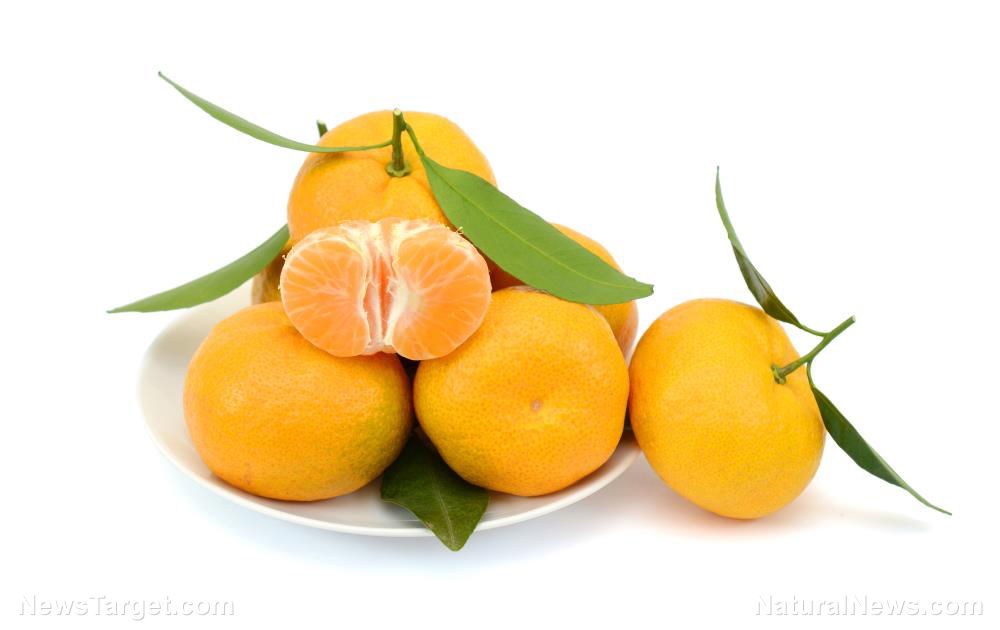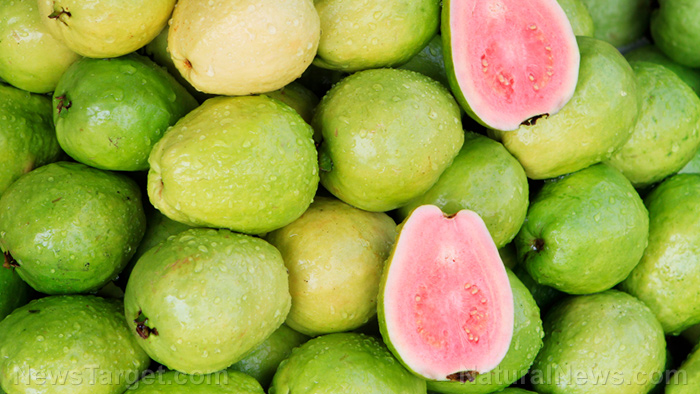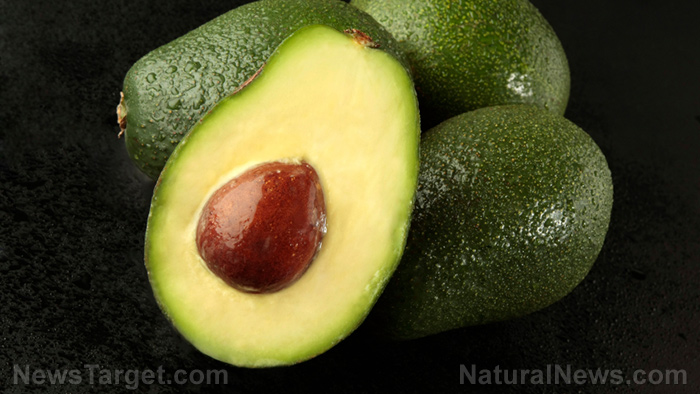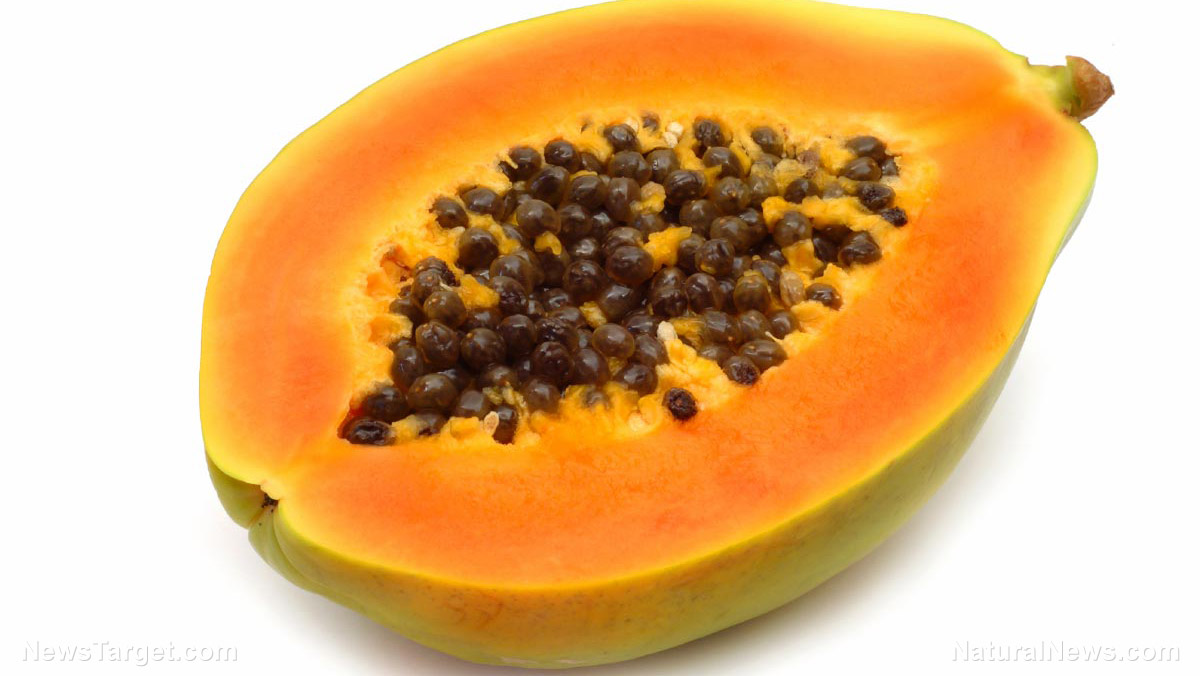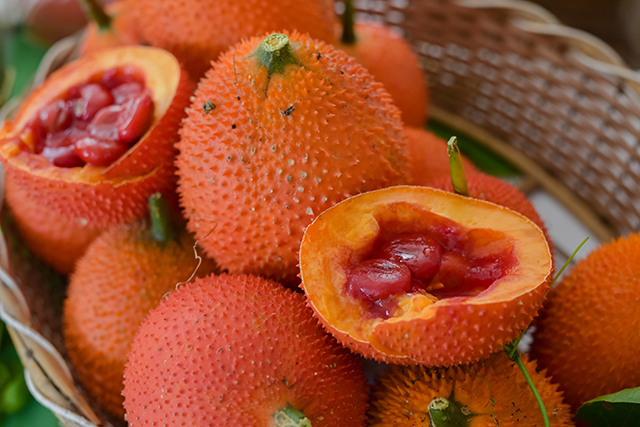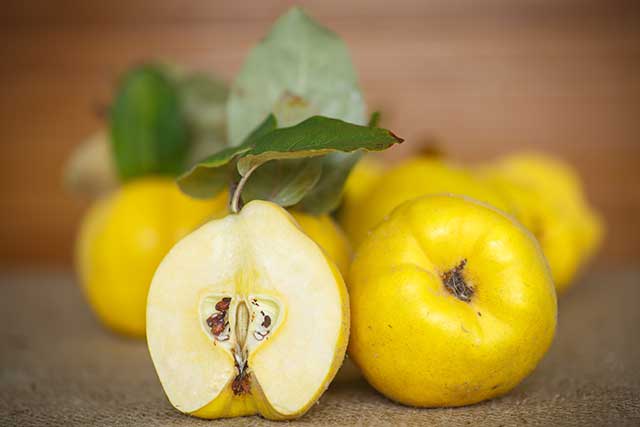Nine reasons to eat an orange (plus a recipe for orange salad dressing)
03/22/2018 / By Zoey Sky
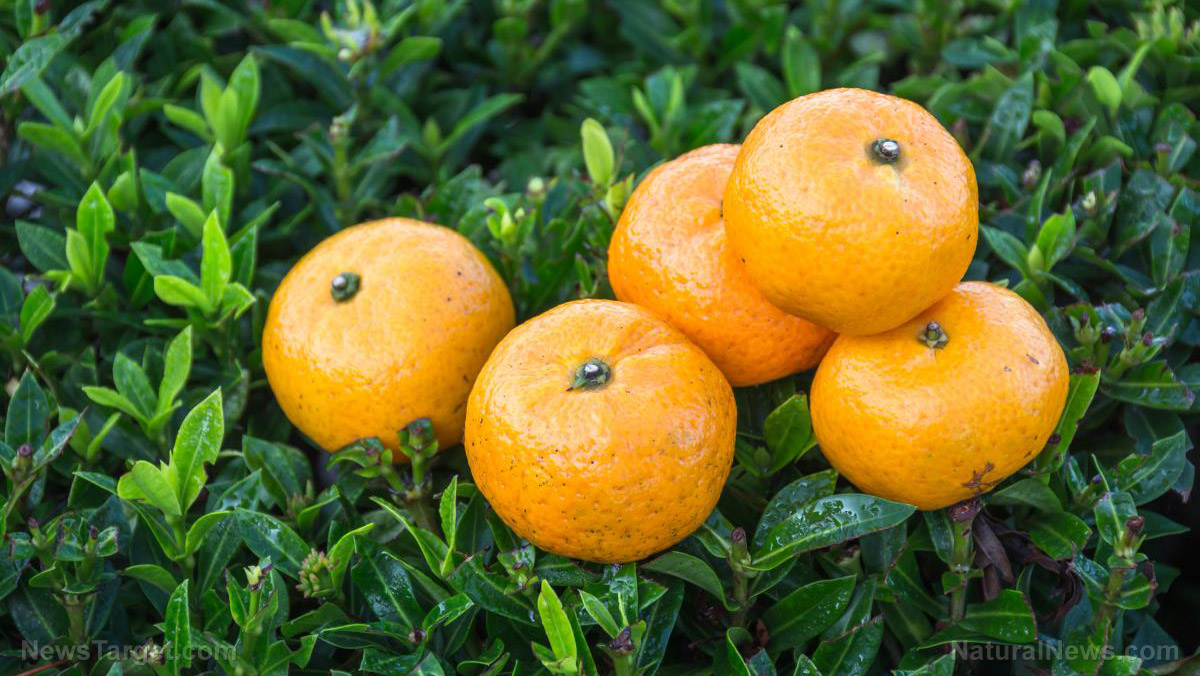
A versatile fruit, the orange offers other benefits aside from abundant levels of vitamin C. Various scientific studies have determined that oranges have a lot of medicinal properties.
Oranges contain a lot of compounds that are good for your health. Below are nine of its “well-established therapeutic applications” which are detailed in three sections – the aroma, the juice, and the peel.
The therapeutic properties of aromas have been documented in various studies. The results have determined that the small molecules which make up aromas are inhaled through the nostrils and into the olfactory lobe. This allows aromas to “have profound [e]ffects on deep structures within our brain, and as a result our entire bodily and emotional infrastructure.”
- Orange essential oils help reduce anxiety and boost moods – The results of a 2000 study discovered that the aroma of orange essential oil “reduces anxiety, generates a more positive mood, and a higher level of calmness in women.” The female participants were exposed to the essential oils in the waiting room of a dental office. The finding was once again confirmed in a 2005 study where the ambient odors of orange essential oils helped reduce anxiety and improved the mood of patients waiting for dental treatment.
Contrary to popular belief, orange juice isn’t really a “dangerous source of highly concentrated fructose.” We also often mistakenly think that “the semi-synthetic ‘nutrient’ ascorbic acid” is the best oranges can offer. However, the “monochemical nutrient” ascorbic acid is simply a shadow of the vitamin C activity carried and expressed via fresh fruits.
Below are some of the evidence-based benefits of orange juice:
- Orange juice boosts weight loss – In a 2011 study, children who drank orange juice regularly consumed at least 523 calories a day more than those who did not. However, there was no difference in the weight levels between the two groups.
- Orange juice minimizes inflammation – In a 2009 study, patients with peripheral artery disease consumed orange and blackcurrant juice, which helped reduce C-reactive protein and fibrinogen levels, two proven measures of systemic inflammation. Meanwhile, a 2010 study proved that orange juice can neutralize the pro-inflammatory effect of a high-fat and high-carbohydrate meal and inhibits endotoxin-induced toxicity.
- Orange juice extract can help suppress prostate proliferation – Even though orange juice contains fructose, a 2006 study confirmed that a standardized extract of red orange juice prevented the spread of human prostate cells in vitro.
- Orange juice improves “good” cholesterol – While raising high-density lipoprotein (HDL) or “good” cholesterol has several proven health benefits, this can be difficult to do with diet and nutrition. It’s also impossible to do using medication. Only a handful of methods, such as consuming high doses of fish oil, have proven to be effective. However, another effective method of increasing HDL is through orange juice. In a 2000 study, it was determined that the consumption of at least 750 milliliters (mL) of orange juice daily for at least four weeks boosted blood lipid profiles by reducing the low-density lipoprotein (LDL)-HDL cholesterol ratio by 16 percent in individuals with high cholesterol.
- Orange juice improves bone health – A 2006 animal study in male rats proved that orange juice helped boost antioxidant status and bone strength.
- Orange juice may dissolve kidney stones – In a study done in 2006, results revealed that orange juice consumption was linked to lower calculated calcium oxalate supersaturation and lower calculated undissociated uric acid, two indicators of lowered urinary calcium stone formation.
Orange peel has many potent and potentially therapeutic compounds. The beneficial compounds of orange peel include pectin and flavonoid constituents like hersperidin, naringin, polymethoxyflavones, quercetin, and rutin.
It also contains many carotenoids along with an important constituent called d-limonene, which makes up 90 percent of citrus peel oil content.
D-limonene is a compound that is named after lemon rind, which contains a large amount of d-limonene. It is listed in the U.S. Code of Federal Regulations as “generally recognized as safe” (GRAS) and d-limonene is often used as a flavoring agent.
Studies have proven that d-limonene has potent anti-cancer properties, especially against metastatic melanoma. (Related: 12 Remarkable Benefits And Uses of Orange Peel.)
Whole orange peel extract has the following benefits:
- Orange peel (flavonoids) contain anti-cancer properties – Findings from a 2007 study revealed that orange peel extract hindered tumorigenesis in a preclinical mouse model of adenomatous polyposis and increases programmed cell death. In two separate studies within the same year, it was determined that orange peel extract has anti-breast cancer properties. The first exhibited chemopreventive properties when used against mammary tumor lesions in an animal model. For the second, it inhibited breast cancer cell lines in vitro.
- Orange peel has anti-arthritic properties – Based on the findings of a 2010 study, orange peel extract greatly suppressed vaccine adjuvant-induced arthritis in a preclinical model.
The various benefits of oranges also highlight the fact that we must start relying more on natural remedies instead of drugs that often have harmful side effects. Increasing your intake of fruits and vegetables will do wonders for your overall health, especially since these foods are rich in various nutrients.
Recipe for easy orange salad dressing
Here’s a recipe for a healthy, delicious, and easy-to-make orange salad dressing that you can use with a variety of salad ingredients:
Ingredients:
Juice of one and 1/2 oranges (at least 1/3 cup)
1/2 tablespoon (tbsp) raw honey
Two tbsp white wine vinegar
1/2 tbsp. olive oil
1/4 teaspoon (tsp) sea salt
1/4 tsp. fresh black pepper
Instructions:
- Use a food processor or blender to mix all of the ingredients. Blend everything until smooth.
- The dressing can also be made with just a bowl and a whisk. Combine everything in a bowl and whisk vigorously.
Notes: The recipe makes at least eight ounces of dressing. Shake before use, and store the dressing in the refrigerator for at least a month.
You can read more articles about the benefits of oranges and other healthier food options at Fruits.news.
Sources include:
Tagged Under: aroma, ascorbic acid, bone health, cholesterol, citrus, citrus fruits, diet, flavonoids, food science, Fresh, fruits, good food, inflammation, ingredients, kidney stones, natural remedies, natural remedy, Orange Juice, orange peel, Oranges, prostate, vitamin C, weight loss




